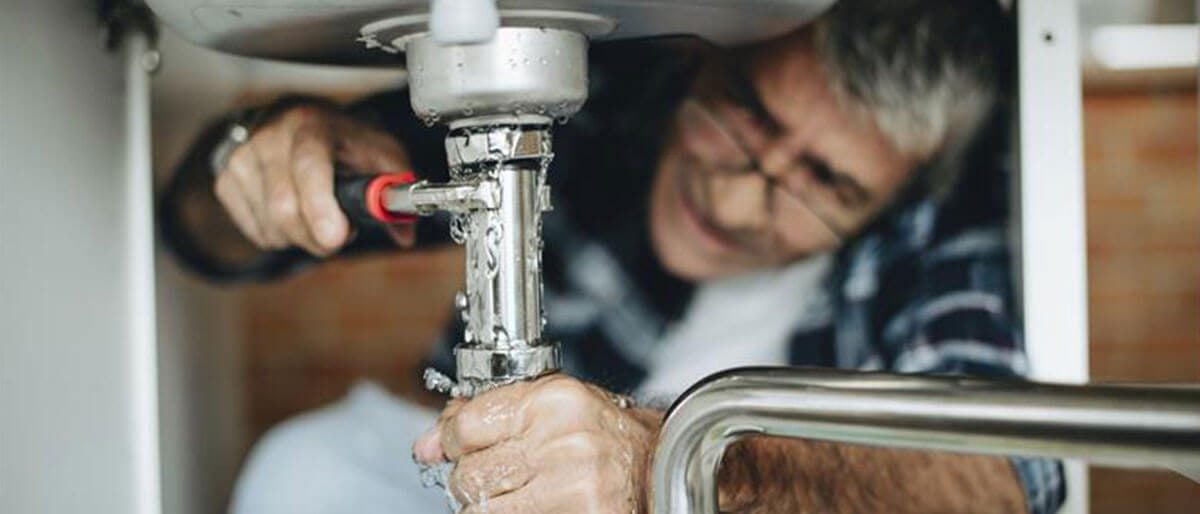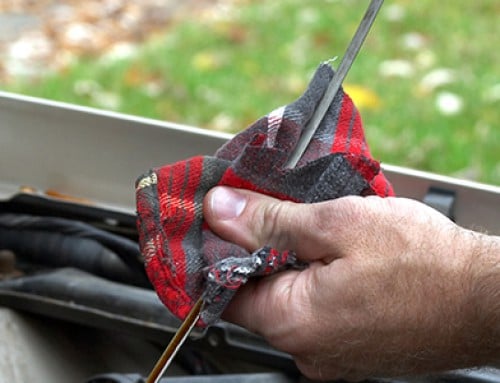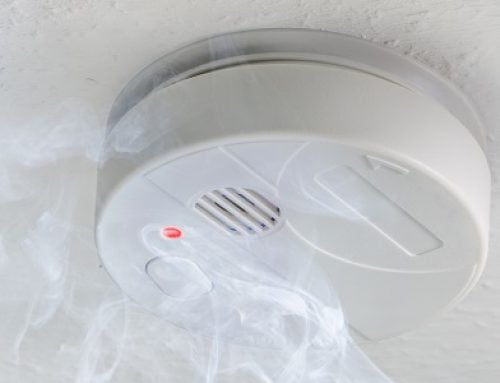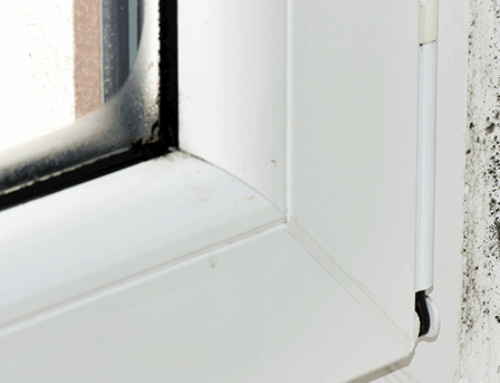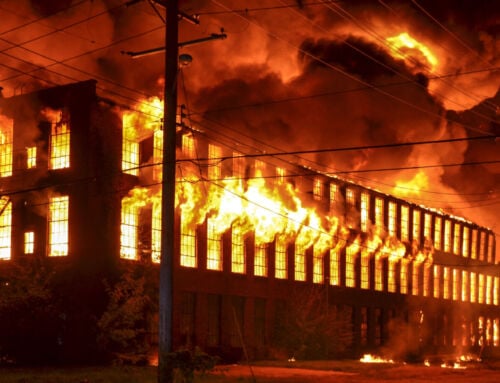As a plumber, you often work in physically demanding environments like cramped, uncomfortable spaces for long periods of time. In these settings, you may be exposed to hazardous materials such as mold, lead, or asbestos. Your day-to-day work also carries the risk of injuries including sprains, strains, electric shock, and burns.
However, physical hazards aren’t the only concern. Whether you’re self-employed or run a plumbing business, you may face additional liability risks. As a business owner who relies on tools and equipment, works on jobsites, and uses a vehicle for work, you take on risks that may not be covered by a general insurance policy.
Depending on your municipality, you may be required to show proof of liability insurance, which covers claims of third-party bodily injury or property damage arising from your work, before being granted a business license. Even in cases where commercial general liability (CGL) insurance isn’t mandatory, prospective clients including larger contractors (such as homebuilders, who may have wrap up liability insurance), may ask to see it before hiring you. While CGL insurance provides a strong foundation for protecting your plumbing business, more comprehensive coverage may be needed to address the wide range of risks you encounter. Here are a few considerations.
What risks do plumbers face?
Property liability
Working on jobsites presents a significant risk of causing damage to the property. For example, using a soldering torch improperly can start a fire. Water damage is another leading cause of loss, particularly on larger jobsites, but these incidents typically stem from human error or faulty workmanship, not extreme weather events.
Consider a situation where an apprentice uses the wrong wrench, causing a pipe to burst and saturate the walls and flooring. In such cases, your company would be responsible for covering the loss.
Professional liability
Your responsibility doesn’t end once you leave a job site. If an issue arises weeks or even months later, like a slow leak from a pipe you installed that eventually causes visible damage, you could still be held liable. Clients may claim that you were negligent or made an error, leading to costly legal action. Even if a judge finds you not guilty, defending your work takes time, money, and energy on a lawsuit which can damage your reputation.
Equipment breakdown
As a plumber, you rely on your tools and equipment to get the job done. While replacing a basic tool like an old wrench may be inexpensive, specialized equipment such as hydro-jetting machines can be costly to repair or replace. If your equipment fails and you’re unable to fix or replace it quickly, you risk job delays and you may even lose contracts.
Theft and vandalism
Stolen or vandalized tools, supplies or vehicles, can lead to unexpected costs and delays. The cost of construction theft in Canada was up to $1 billion in 2021, making it a growing concern for tradespeople. Whether you store equipment in your truck, on-site, or at a storage facility, it can be a target, so it’s important to take precautions.
Vehicle losses
Since you drive to jobsites, you’re at risk of collisions, which could damage your vehicle and equipment, as well as injure yourself, your workers, or other passengers. If you’re relying on your personal auto insurance, you might find you’re not covered when using the vehicle for work. A collision under these circumstances can lead to significant out-of-pocket expenses.
Business interruption
Unforeseen disruptions, whether caused by crime, severe weather, or cyberattacks, can lead to project delays and lost income. But the impact goes beyond financial loss. If you’re unable to complete work on time, it can damage your reputation, even when the delay is beyond your control.
Cyber risk
As more plumbing businesses adopt digital tools for invoicing, scheduling, and customer management, they become increasingly vulnerable to cyber threats. A data breach or ransomware attack can compromise client information, disrupt operations, or lead to legal issues. Even small businesses are targets, making cyber coverage and proactive protection measures essential.
Risk mitigation strategies for plumbers
To reduce workplace hazards and protect your business from unexpected losses, follow these best practices:
- Use appropriate PPE: Make sure you and your crew have the appropriate personal protective equipment (PPE) for the job, such as eye protection, respirator masks, ear plugs, heavy-duty gloves, and slip-resistant boots.
- Maintain a clean jobsite: Keep the jobsite clean and tidy. Clean up water spills immediately to prevent slips and falls. Store tools safely when not in use, especially sharp, or hazardous items such as a plumber’s torch.
- Inspect and replace tools regularly: Keep all tools in proper working condition. Replace damaged or worn-out equipment as soon as possible to avoid malfunctions or injuries.
- Secure tools or equipment: If you’re leaving tools on a jobsite overnight and on weekends, make sure they’re stored in a lock box with reinforced locks or an enclosed building with alarms.
- Keep detailed inventory records: Track all tools and equipment you’re using on a jobsite, which is necessary for making a claim in the event of theft. That should include serial number, make, and model, date purchased, value or cost, markings, and photos.
- Monitor hot work carefully: When performing hot work on a jobsite such as welding or soldering, perform fire safety checks for one to two hours after completion.
- Strengthen your cybersecurity: Protect your computer systems with anti-malware, and train employees to recognize social engineering techniques such as phishing that could lead to a data breach.
- Leverage smart technology: On larger projects, consider the use of smart sensor technologies that can provide real-time monitoring of water leaks and identify small problems before they become bigger ones.
- Review your insurance coverage: Make sure you have the right insurance coverage.
How can plumbers’ insurance help protect your plumbing business?
Whether you’re self-employed or managing a company, it’s important to protect your business with the right insurance. A commercial general liability policy is a good start, but plumbers’ insurance can be tailored to include professional liability, equipment breakdown, commercial auto, business interruption and cyber, as well as employee protection, among other protections, providing a range of protections for the range of risks you face as a plumber. To learn more about how you can safeguard your plumbing business, consult with a Federated Insurance risk services specialist, or visit our plumbers insurance page today!
This blog is provided for information only and is not a substitute for professional advice. We make no representations or warranties regarding the accuracy or completeness of the information and will not be responsible for any loss arising out of reliance on the information.
